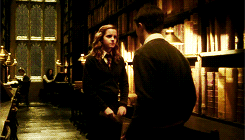Here in the Nation's capital we're lucky to have such a plethora of arts & culture locally. While it can be argued that DC isn't exactly the foremost location for theatre and music, the museums and traveling gems we have are wonderful-with regularity. The
icons exhibit currently hosted at the National Gallery of Art is a prime example. It also features books, jewelry, mosaics, ceramics, and manuscripts, most never before on loan to the US. It's only in town through March 2-get there if you can. Then it heads to LA for a few months before returning to Europe. Read more about the exhibit
here.
Icon by Andreas Ritzos, from the Byzantine & Christian Museum in Athens. One of my favorites after recently visiting the exhibit.
An additional bonus, which I wasn't expecting, is
The Dying Gaul from The Capitoline Museum in Rome, which is also in display in the National Gallery rotunda through early March.
---
Recently I've found myself 'rediscovering' much of Shakespeare. I always enjoyed the plays in school, but they just get richer with age. We're lucky to live in a time that is producing some absolutely marvelous new adaptations for stage and screen, that are more accessible to the public than ever. First it was
Hamlet and
Macbeth from PBS, starring David Tennant and Patrick Stewart. One of the best things to come out of 2012 was
The Hollow Crown, a stunning film production of the four history plays that form Shakespeare's second tetralogy-
Richard II, Henry IV (2 parts), and Henry V. Since I was exposed almost exclusively to the tragedies and comedies on school, this introduction to the histories was a real treat for me. The acting is just brilliant, featuring recognizable faces like Tom Hiddleston, Jeremy Irons, David Suchet, Patrick Stewart, Ben Whishaw, and
Downton Abbey's Michelle Dockery (though it is a shame that her character seems mainly to exist for the purpose of making out with Hotspur). The whole tetralogy makes for a bit of a long haul (8+ hours for all four plays), but you won't be looking at your watch at all. Watch a preview below (more video from the BCC
here).
PBS has also produced a nice little series that showcases the actors' experiences preparing for Shakespearian roles, which aired last year. Watch
Shakespeare Uncovered here.
And, as if Tom Hiddleston in
The Hollow Crown weren't enough, he's also starring in the National Theater production of
Coriolanus, which is going to be broadcast live in movie theaters around the world on January 30, with encores to follow in the weeks afterword. I am beside myself in excitement for this. Go
here to find a screening near you!













